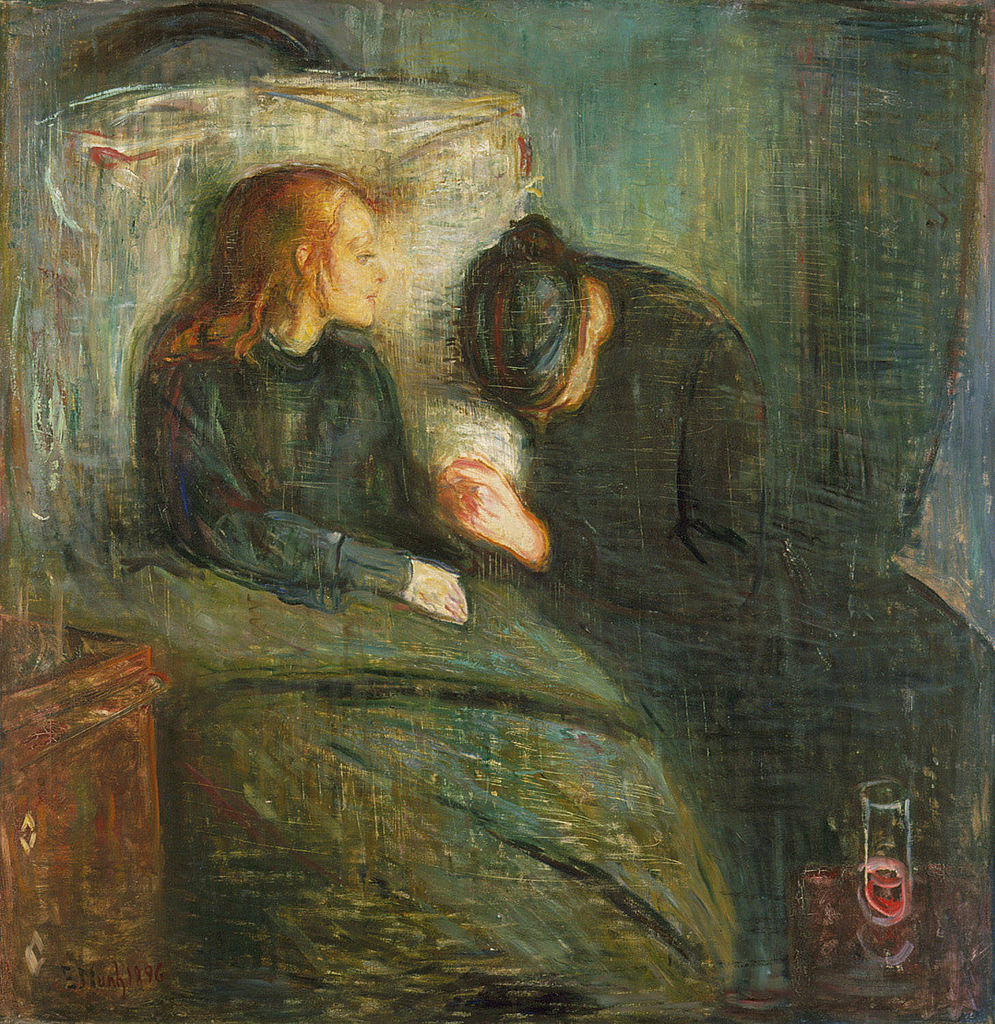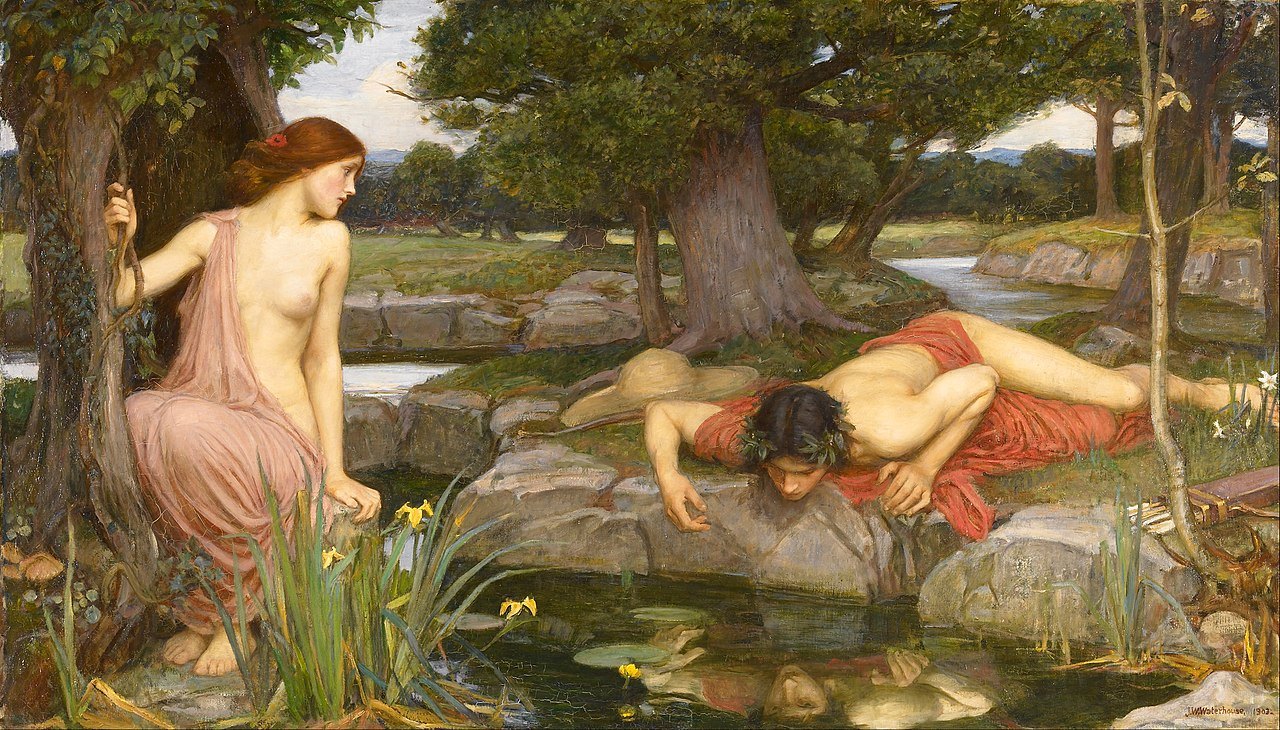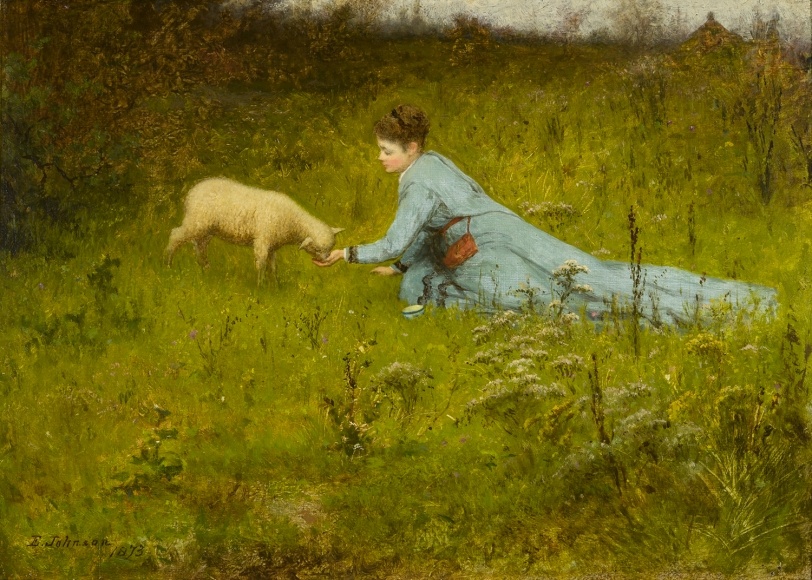Atheism is rebellion – it is hardly a methodology of thought, truth, or even science. Unknown to its cheerleaders is the fact that atheism cannot overcome apoptosis – it is programed to commit suicide. Its genetic contradiction kills it. This is why atheism is now regarded as a genetic mutation, slotted for destruction.
Its death sentence – is simply this – it cannot build an equitable, just and good society in which humans will want to live. Morality is not brain-washing. As recent studies clearly, infants come equipped with a sense of right and wrong. In other words, the Socratic tradition had it right all along.
While nature has its own innate laws, described by science – humans are born with natural law. In other words, because humans are naturally moral, there is God.
Thus the entire effort of “proving” God by quantifiable methods is a false one. Ludwig Wittgenstein said it best, at the end of his Tractatus: “…if all possible scientific questions be answered, the problems of life have still not been touched at all.”
To try to answer these problems (why a human has worth, purpose and meaning) with quantifiable methods (which is Scientism) is useless. Again, Wittgenstein points out that each is purpose-specific; it cannot be extended into all areas of life. If it is, then he says, “language goes on a holiday.” Thus, scientism is simply illogical, because it cannot be rational, and therefore wrong. Simone Weil understood this clearly, for she observed: “Science is not a fruit of the spirit of truth.”
And because of moral law, atheism is also not true. Since modernity is an age of confusion, because it is an age of relativism, truth is defined as opinion, personal preference, choice, or taste. Thus, atheism is simply all that – it is not a verifiable, quantifiable fact.
Each time, an attempt is made to disprove, or prove God, by way of science, language goes on a holiday. Therefore, atheism can only be opinion, taste, preference, choice, which is the only viable explanation possible.
Atheism also seeks to replace religion – and it simply does not have the logical means to accomplish what it seeks. It is deficient in a viable language that will satisfactorily explain the “problems of life.” And “language” means ideas.
If atheism truly wants to replace religion, then it must abandon the language of science and create one that properly explains why each human life is valuable, purposeful and meaningful. Humans as creatures with an innate natural law continually need these explanations. They do not only scientific ones, which can only be true according to their own purpose of quantification.
But since atheism is scientism, it is inherently unable to formulate a language for morality- because the result would then be religion. This is the fatal flaw. Death is the only possibility. It is like asking a tree to find a way to use dental floss.
Given this problem, the only possible way out for atheism is to do what Nietzsche does – declare the death of God – and then entirely abandon morality. To fully recognize that man is only an animal, and nothing ever more, destined for the dust, like any animal dead in the forest.
Second, atheism must fully embrace Hitlerism (this term is preferable to Nazism which was the political and social practice of Hitlerism. Nazism is dead, but Hitlerism is alive and well – and embodied by every atheist, whether s/he understands this or not).
This means that atheism needs to accept what a life without God fully entails. And that life cannot then be based upon morality, since that is simply brain-washing and an expression of weakness – that life must be based upon the full consequences of man being an animal – existing “beyond good and evil.” It was Simone Weil who very elegantly understood this connection and identified it.
So, here is the challenge for atheists – if they actually believe their opinions, tastes, and preferences – they have to accept that they must Hitlerism, which is the best and most accurate (and even courageous) explanation, or program, of living a life without God and denying natural moral law. Therefore, a true atheist must be unapologetically Hitlerian, which alone had the courage to describe what life without God is like.
The corollary to this is another question – after deny God, why do atheists then proceed to live like perfectly decent Christians, worrying about human rights, social justice, tolerance, fairness?
Should they not, instead, be striving to express their will to power – the destruction of the weak, the strengthening of the species, the struggle to survive? There can be no decency in atheism – because that is weakness – and weak animal lives for too long.
There is indeed an adolescent quality to atheists who frolic about having tossed off all authority – perhaps this is why the greatest “thinkers” of atheism tend to be academics – and yet they do not understand the consequences of their “thinking.”
First, atheism is simply a preference, a world-view, an opinion, which is unable to generate a particular type of society in which humans might want to live. Why? Because atheism is no more than a critique of normative thinking; it is not an alternative to it. There is reason why ideas are normative.
Therefore, atheism can only last for the life-time of the individual atheist. And studies by Eric Kaufmann bluntly point out that atheists just do not have enough babies to keep their world-view going into the future. Atheism will die with the atheists. Religious people have more babies, and therefore religion will keep on going.
Atheism needs to answer why this is. Historically, to exist and think without God is alien to what it means to be human. Archaeology points this out continually – even that civilization is not the result of economic forces, but rather of religious worship (as, say, in Gobekli Tepe). Farming, domestication, metallurgy, cities, social hierarchies, culture are the consequences of religion alone. Doubt is neither creative, nor generative – socially or biologically.
Second, the position of atheism is arrived at by way of reason, as expressed in scientism (which says that only quantifiable probabilities exist and are therefore true). But if atheism is correct, then rationality is simply the result of random chance, which is to say, it is the product of pure irrationality. How can rationality be created by irrationality? Atheism provides no answer.
Third, the famous philosophical question – why is there something, when there could be nothing? Physics tell us that all things are forever falling into entropy, which means that all objects prefer to be at rest rather be active.
Therefore, once the first accidental burst of creation happens, and random things get created, why do all things become self-generating? Why does life keep producing more life? Why the instinct for procreation, which is an on-going waste of energy, given that entropy is the normal state? In other words, why does life need to keep on going?
Fourth, if atheism is correct, then why must humans continue to exist on the earth? They have been nothing but trouble, and highly destructive to boot. Why did nature (which is viewed as all-wise) carry on with this experiment? What good have humans ever done to the planet?
Fifth, if atheism is correct, then man is certainly animal. But why would nature, in her wisdom, let evolve a creature that is so utterly unsuited to live in nature? All man has is intellect, with which to fashion the earth into a world in which he alone can exist. Why this disconnect creature and natural world?
Such unresolved questions also build internal contradictions within atheism. For example, why is it that atheists first deny the existence of God and regard religion as ignorance, superstition, and barbarity which has oppressed and imprisoned mankind, but then promptly behave, think, act, and live like good Christians? Why can they not embrace and “celebrate” their “animalness?”
An atheist is also a Darwinian nowadays, which means that men and women must be driven by instinct, which is the urge to survive and the will to power. Thus, an atheist must be a powerful predator, who seeks to destroy the weak.
Such is the true calling of an atheist, to be a strong animal, free of morality, which is part of the prison created by religion.
Thus, why live in family groups, why behave decently, why be nice, why worry about “human rights,” why love anyone other than your own self, why object to killing and murder, why not seek to destroy charity work (which only promotes life for the feeble), why have doctors and hospital who prolong life for the sick who should rightly die, why care for the elderly who are useless, why have education for all, why not kill the handicapped and the mentally challenged, why have prisons since criminals are only being good animals and they should be free to win even more power?
Indeed, are there any true atheists in the world?
There was one, and he wrote the best manual for the atheist, liberated from the prison of religion. This book made the author an instant millionaire, with worldwide sales. The appeal of the book was that it laid bare man as a true animal who survived through strength who had no need of God and morality.
The book was Mein Kampf, the author Adolf Hitler, who was a millionaire-writer long before he became the Fuhrer. He did create a purely atheistic culture, in which man the animal reigned supreme. It six years and about fifty million lives to destroy this atheist world. It is Simone Weil who made this insightful connection between atheism and Hitlerism.
But why does modernity need atheism?
First, it captures perfectly the relativist ethos that permeates the world today, with its denial of truth, history, morality in favor of opinion, taste, preference, choice.
Second, by being in a state of denial, atheism is a rebellious throwing off of constraints which has come to define freedom.
Third, as Charles Péguy observed long ago, there really is no such thing as atheism, because what passes for the denial of God is really an “auto-theism,” a deification of the self.
By removing God, man can worship himself. Thus atheism is attractive, because it is validated narcissism, for atheism has no interest in the future – it is merely the mirror with which to gaze upon oneself – in the illusion of an unending present.
The photo shows, “Echo and Narcissus,” John William Waterhouse, painted in 1903.



